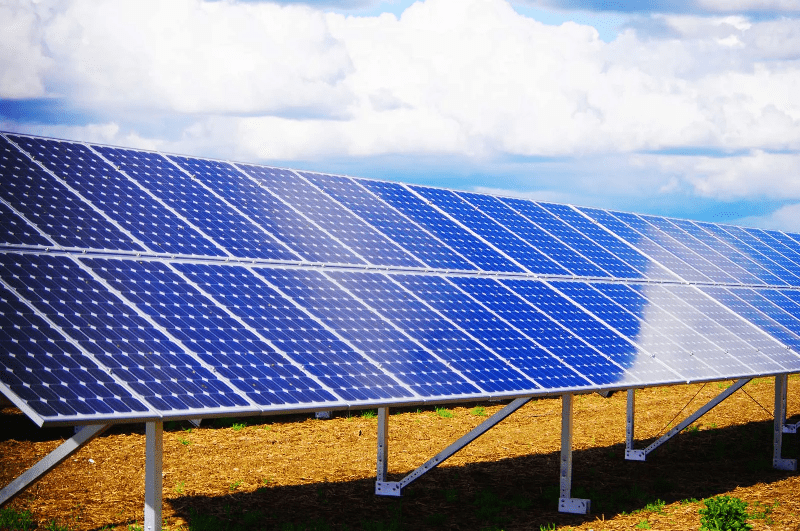In Short : The United Arab Emirates (UAE) is steadfast in its commitment to harnessing solar energy as a fundamental pillar of its sustainable development vision. Through active participation in initiatives like the International Solar Alliance (ISA), the UAE is advancing the global shift toward renewable energy. By prioritizing solar power, the UAE aims to reduce its carbon footprint, promote environmental conservation, and contribute significantly to the global transition to clean and sustainable energy sources. Collaborative efforts within platforms like the ISA facilitate knowledge exchange, technological innovation, and policy advocacy, fostering a brighter, greener future for the UAE and the world.
In Detail : ABU DHABI : The UAE’s commitment to renewable energy and solar energy solutions is evident in its ambitious targets, innovative initiatives, and substantial investments in this domain, according to Dr Ajay Mathur, Director-General of the International Solar Alliance (ISA).
“In alignment with its commitment to the United Nations Sustainable Development Goals, the UAE has implemented a range of forward-thinking initiatives and projects. Prominent among these are the Dubai Clean Energy Strategy 2050 and the Abu Dhabi Vision 2030, both of which outline ambitious targets for the adoption of renewable energy sources, including substantial expansions in solar capacity. These initiatives underscore the UAE’s determination to leverage solar energy as a cornerstone of its sustainable development vision. This will drive economic growth band reduce carbon emissions,” the international official told the Emirates News Agency (WAM).
He hailed the UAE’s preparations for the COP 28 conference are impressive. “The UAE’s preparations for the COP 28 conference are impressive, reflecting its commitment to advancing the global climate agenda. The UAE has hosted several high-level meetings and events in the lead-up to the conference, bringing together key stakeholders to discuss and collaborate on the most critical climate issues. The UAE’s COP 28 presidency has also outlined a clear vision for the conference, which is focused on accelerating the transition to a clean energy future and building resilience to climate change impacts.”
Dr Mathur commended the UAE’s leading role in accelerating the adoption of renewable and solar energy solutions. “The UAE plays a pivotal and prominent role in spearheading the adoption of renewable and solar energy solutions. The UAE’s leadership in this domain is exemplified by its exemplary projects and initiatives, such as the Noor Abu Dhabi Solar Plant and the Mohammed bin Rashid Al Maktoum Solar Park. The UAE has also implemented forward-thinking policy interventions, such as the Dubai Solar Rooftop Program, to encourage the adoption of solar energy at the consumer level.”
The international official underscored the urgent need to develop and widely deploy advanced solar energy solutions.
The urgent need to develop and deploy advanced solar energy solutions is driven by several pressing factors, including climate change, energy access disparities, and socio-economic development imperatives. Solar energy combined with battery storage offers a promising pathway to a sustainable and equitable energy future, he said.
“The UAE COP28 presidency has stressed the need for renewable energy capacity to triple by 2030. To achieve this, solar will play a crucial role. The International Solar Alliance is committed to supporting its members by helping to expedite solar deployment. For this, we need a massive surge in clean energy investment, tripling current levels by 2030.”
International financial organisations and development institutions, he continued, have a critical role to play in addressing the investment gap in developing economies. “Working with national governments to improve the investment environment and providing financing, they can help bridge the gap and promote clean energy projects in developing nations.
“As we approach the global stocktake, move closer to the 2030 deadline, and at the same time, also see an intensification of climate impacts across the world, it is critical that we learn and share the regulatory frameworks and business models that work. We must create guarantees that provide confidence to investors and help create the trained and certified people-power that can install and manage solar facilities. The energy landscape of the future will be shaped by the decisions we take today,” he noted.
ISA is an action-oriented, member-driven, collaborative platform for increased deployment of solar energy technologies as a means for bringing energy access, ensuring energy security, and driving energy transition in its member countries. The primary objective of the alliance is to work for the efficient consumption of solar energy to reduce dependence on fossil fuels. The UAE is a founding member of the Alliance, which was established under the Paris Declaration at the United Nations Climate Change Conference in Paris in 2015. The Emirates joined the alliance in late October 2017 and its membership was officially approved in February 2018.
The ISA was conceived as a joint effort by India and France to mobilise efforts against climate change through deployment of solar energy solutions. It was conceptualized on the sidelines of the 21st Conference of Parties (COP21) to the United Nations Framework Convention on Climate Change (UNFCCC) held in Paris in 2015. With the amendment of its Framework Agreement in 2020, all member states of the United Nations are now eligible to join the ISA. At present, more than 120 countries are signatories to the ISA Framework Agreement, of which 94 countries have submitted the necessary instruments of ratification to become full members of the ISA.

